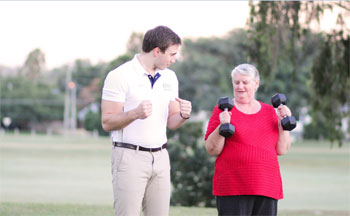Cancer Labelled Biggest Impact on Australians Health

Cancer Labelled Biggest Impact on Australians Health
A report released this month by the Australian Institute of Health and Welfare has indicated that cancer has the biggest impact on our health, and is costing us, as a nation, more years of life than any other disease group.
Exercise & Sports Science Australia (ESSA) is urgently encouraging all Australians and health professionals to recognise the benefits of exercise as not only a way to reduce cancer risk, but also a medicine that has potential to support better health outcomes during and after cancer treatment.
'This report provides significant evidence that all Australians need to be more active in order to benefit their health, especially when living with chronic conditions and diseases like cancer," says ESSA Chief Executive Officer, Anita Hobson-Powell.
Whilst other chronic conditions, such as cardiovascular disease, are more common and cause a greater number of deaths in Australians, the report, Burden of cancer in Australia: Australian Burden of Disease Study 2011, found that cancer results in more years of life lost due to deaths occurring in younger age groups.
Notably, while exercise has been included as a core treatment component after a cardiac event (i.e. through cardiac rehabilitation programs), despite evidence suggesting exercise could play a similar role in cancer management, regular uptake of exercise as part of routine cancer care has yet to occur.
Louise Czosnek, Accredited Exercise Physiologist, explains that there is now strong evidence that exercise is effective in cancer management and can reduce the relative risk of some types of cancer re-occurrence, cancer-related mortality and the side effects associated with cancer treatment.
'Structured exercise that is tailored to the individual should be included as a core component of cancer management. Further, we have a growing population of cancer survivors that have unique healthcare needs, of which exercise is an efficacious adjunct therapy that supports cancer survivorship."
The benefits of an appropriately prescribed exercise program for those living with cancer include; improved muscle mass, strength, and power, cardiorespiratory fitness, physical function, chemotherapy completion rates and reduced anxiety and depression.
'It is essential for exercise programs to be individualised according to your treatment status, disease stage, functional capacity, physical limitations, exercise history and preferences. It's recommended you consult an Accredited Exercise Physiologist before you commence any exercise," says Ms. Hobson-Powell.
To get in contact with your local Accredited Exercise Physiologist, click here.
You can locate the full Australian Institute of Health and Welfare publication here.
MORE



